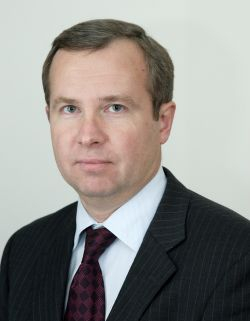
Andrei Soukhomlinov
Partner, Co-Head of Salans Russian
Real Estate / Construction Practice
Salans
The preparations for the 2014 Sochi Olympics and the 2018 World Cup have given a boost to the development of Russia's sports infrastructure. The construction of new facilities and the renovation of existing facilities is ever more important. However, this kind of project involves a range of specific legal issues that require specific legal support. In particular, sporting requirements need to be taken into consideration alongside the general requirements of real estate and construction law.
Law No. 329-FZ on physical culture and sport in the Russian Federation of Dec. 4, 2007 (as amended) (herein after the "Law"), defines a "sports venue" as real estate facilities or complexes intended for use in sports and sporting events. This term includes sports facilities, which are defined in the Law as engineering structures created for use in sports and sporting events and which have spatial and territorial boundaries.
Why is this terminology important? The Law places a number of restrictions on the owners of sports venues, such as the obligation to ensure the proper technical equipment of sports venues in accordance with technical regulations, national standards and other applicable rules, as well as liability for the death or injury of people playing sports at such venues. The Law also provides restrictions on the use of sports facilities solely for sports and cultural events, and for their servicing. It is not entirely clear why the Law imposes this restriction only on sports facilities, rather than on all sports venues. The Law's prohibition on the privatization of state-owned sports facilities, rather than sports venues in general, is also questionable.
The Law provides that sports venues are social infrastructure, without providing any definition of that term. This rule was most likely included in the Law to make its terminology compatible with other laws. For example, the Town Planning Code does not include the terms "sports venue" or "sports facility," while the terms used with the closest meaning are "utilities infrastructure" and "social and household utilities facilities." The Land Code uses the term "social infrastructure facilities."
The specific organizational and legal structure of any project will primarily depend on whether it is for new construction or renovation of existing facilities. With respect to new construction, and in the case of the football stadiums for the 2018 World Cup, for example, most will be newly built, the Law provides that sports venues should be situated in accordance with territorial planning documents and town planning rules. The requirements for sports venues in territorial zones should be determined in accordance with the land use and development rules ("PZZ"). These rules of the Law entered force from January 1, 2010, that is, from the date the PZZ should have been approved by local and regional governments, including Moscow and St. Petersburg. However, Moscow, for example, has yet to adopt its PZZ, which may cause certain difficulties with planning and organizing the construction of new sports facilities pending adoption of PZZ.
Where the project is for renovation, it should be noted that existing facilities, a stadium or arena or the underlying land plot may be owned by the state or municipality, legal entities or individuals. The Law also lists sports and physical culture organizations as potential owners of sports facilities.
How can the renovation of existing sports venues, which require major investment, be made attractive to investors? Clearly a comprehensive approach in which the project also provides for the creation of commercial properties, in addition to sports facilities, would help.
The provisions of the Law on the Russian Register of Sports Venues ("Register"), which took effect at the end of 2010 and apply to facilities in all kinds of ownership, should also be considered. In particular, the Law prohibits the use of sports venues that are not in the Register for official sports events, except where a venue is being used for such an event for the first time. The problem is that the Register has not yet been created, which places even the use of existing sports facilities for official events into doubt.
In light of the above, large-scale plans for the construction or renovation of sports facilities may encounter certain problems and further improvements to sports legislation, including the amendment or addition of some provisions of the Law, are necessary.
A Message from The Moscow Times:
Dear readers,
We are facing unprecedented challenges. Russia's Prosecutor General's Office has designated The Moscow Times as an "undesirable" organization, criminalizing our work and putting our staff at risk of prosecution. This follows our earlier unjust labeling as a "foreign agent."
These actions are direct attempts to silence independent journalism in Russia. The authorities claim our work "discredits the decisions of the Russian leadership." We see things differently: we strive to provide accurate, unbiased reporting on Russia.
We, the journalists of The Moscow Times, refuse to be silenced. But to continue our work, we need your help.
Your support, no matter how small, makes a world of difference. If you can, please support us monthly starting from just $2. It's quick to set up, and every contribution makes a significant impact.
By supporting The Moscow Times, you're defending open, independent journalism in the face of repression. Thank you for standing with us.
Remind me later.





